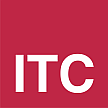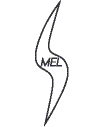Division of Energy Use and Refrigeration
HeadRoom 407A |
Sławomir Bielecki, DSc PhD Eng, WUT professor e-mail: slawomir.bielecki@pw.edu.pl |
OfficeRoom 405 |
Ewa Stefaniak, MA e-mail: ewa.stefaniak@pw.edu.pl phone: 22 234 51 67 |
In October 2025, the Departments were merged: Rational Use of Energy (RUE) and the Department of Refrigeration and Building Energy (RaBE). The merger resulted in the creation of the Department of Energy Utilisation and Refrigeration (EUR).
Employees from both divisions now make up the Division of Energy Use and Refrigeration
“Rational use of energy is about using it wisely. To do so, users need to be characterized by responsible approach to energetics. The name Rational Use of Energy is to suggest that energy should be utilized only then, when it is really needed. Otherwise, we should do our best to minimize energy consumption. The idea of the rational use of energy takes something more than merely energy saving. It is, in fact, a sophisticated technical, organizational and financial task.”
(en excerpt from the interview given by Professor Tadeusz Skoczkowski on 3 September 2014 for TOK FM radio station)
Our scientific activity
Academics affiliated with the Division of Rational Use of Energy focus on research related to energy use, especially on improving energy efficiency and working out possible forms of lowering the rate of energy consumption. The main fields of research concern rational use of energy (energy efficiency of industrial and exploitation processes, energy loss in electrical grid, prosumer and civil energy, local and national sustainable energy policy, energy consumption vs. environment), pumps and pumping systems (rotodynamic pumps), thermal power stations, district heating.
| In our Division under the direction of professor Tadeusz Skoczkowski is implementing the INNOPATHS Project: Innovation pathways, strategies and policies for the Low-Carbon Transition in Europe, co-financed by the European Union Framework Programme HORYZONT 2020, Contract no. 730403. |
|
Our didactic mission
As part of technical and didactic facilities there are 3 modern laboratories: Laboratory of Electronics and Microprocessing Technology; Electrical Laboratory; Laboratory of Pumps and Hydraulic Machines. The aim of the Division is to give courses in line with curricula developed at the Faculty of Power and Aeronautical Engineering, WUT in all levels and types of studies. The topics include:
- energy generation, distribution, conversion and consumption
- energy efficiency
- pupms
- thermal power stations
- district heating
See the list of courses run in English as the language of instruction
Our laboratories:
- Electrotechnical with Electric Machines
- Electronics and Microprocessor Technology
- Pumps and Hydraulic Machines
We have also free access to the Laboratory of Energy Efficiency in the Polish-Japanese Centre for Energy Efficiency by National Agency for Energy Conservation (KAPE).
The Division offers a number of elective courses which may complete students’ majors. These are as follows:
- energy efficiency of pumping systems in industry and municipal engineering
- electric power systems, regulation and control of Renewable Energy Sources
- energy efficiency electric driver of industrial devices
- EMC – electrical and radiation-related threats
- electrical machines and devices
- protection of the environment in electricity sector
- rational use of energy in industrial plants and municipal enterprises
- thermo energy systems
- digital technology and microprocessor engineering (including introduction to operating systems)
- trigeneration – combined heat, cooling and power
- electric power devices
- engineering applications in power networks
- application of power electronics devices
- sustainable EU energy policy.
Choosing the above electives will allow you to fully understand and extend knowledge on:
- numerical analysis of calculating electric circuits and systems
- digital electronic systems, in particular microprocessing technology
- power electronics supply systems of electric devices, in particular regulated rotation speed systems
- electronic devices used in power industry and aviation
- electronic power systems, operating and regulating Renewable Energy Sources
- competitive electricity market, CO2 emission, topics on environmental protection being of key importance for the energy and industrial sectors.





